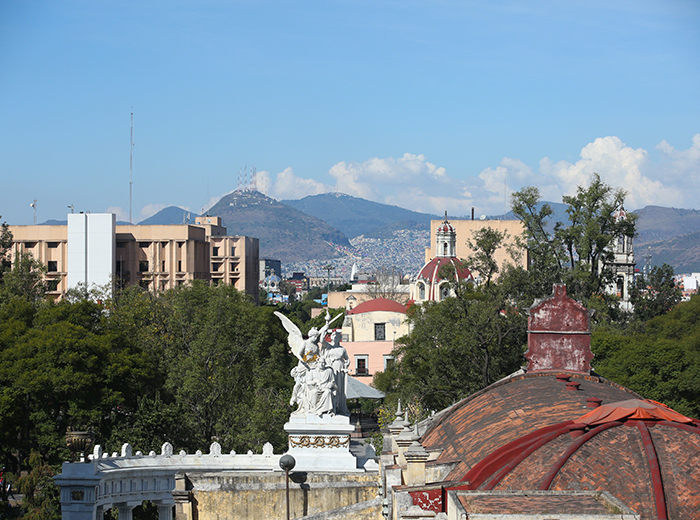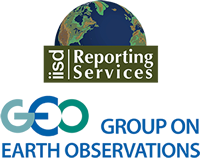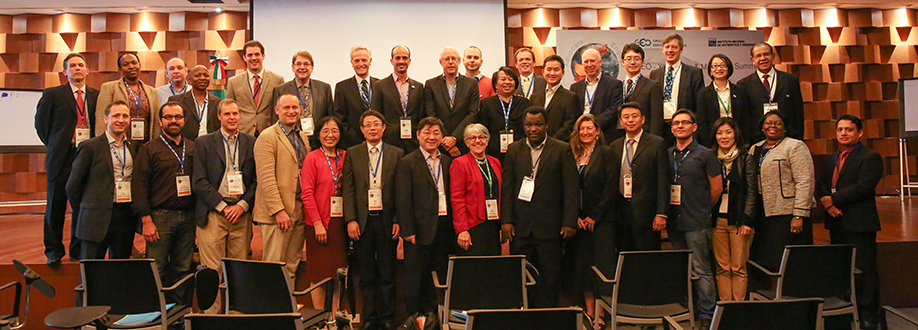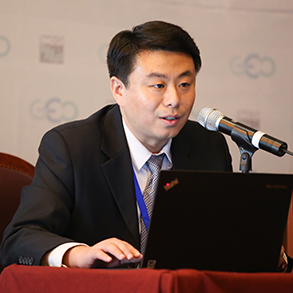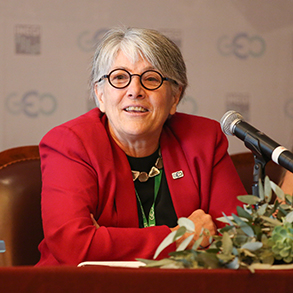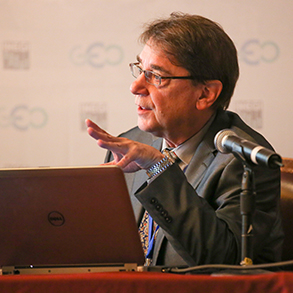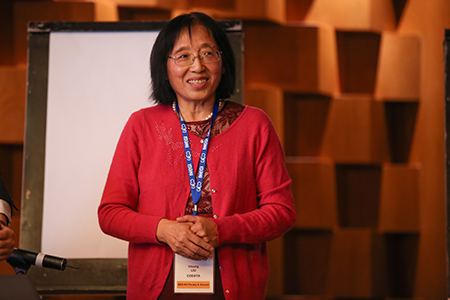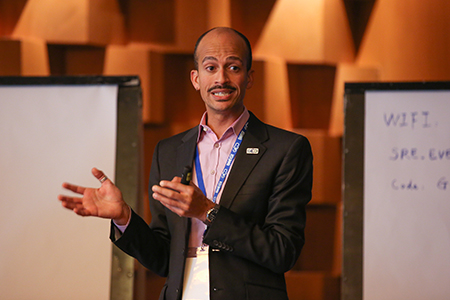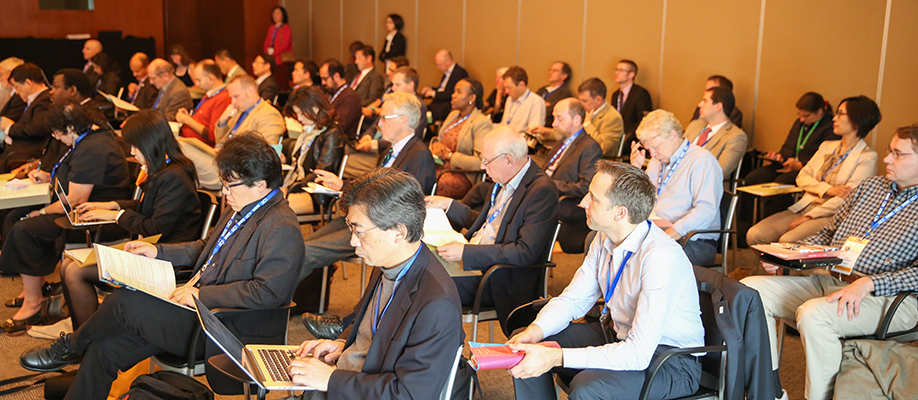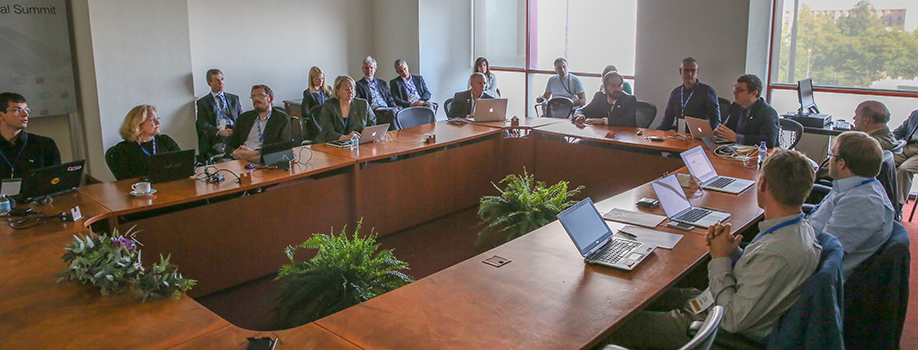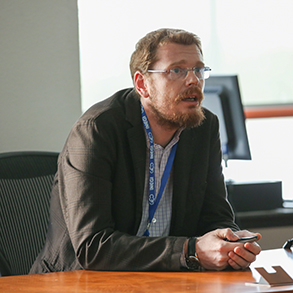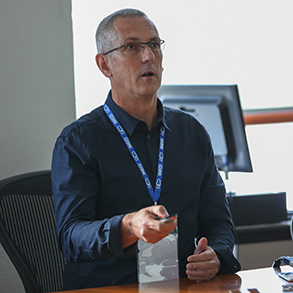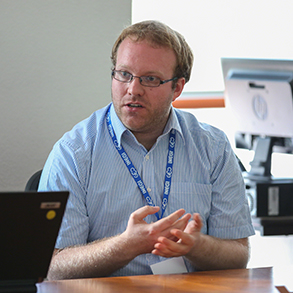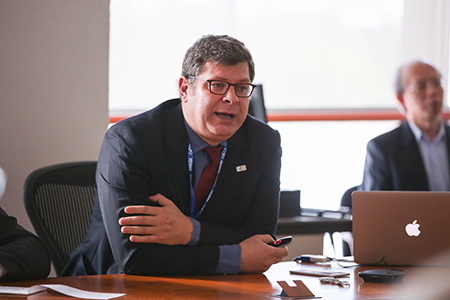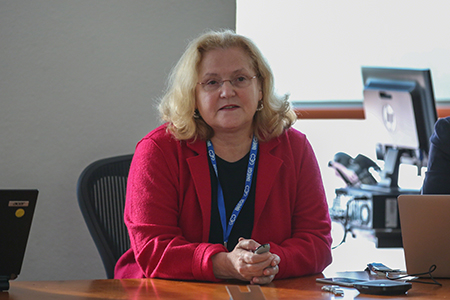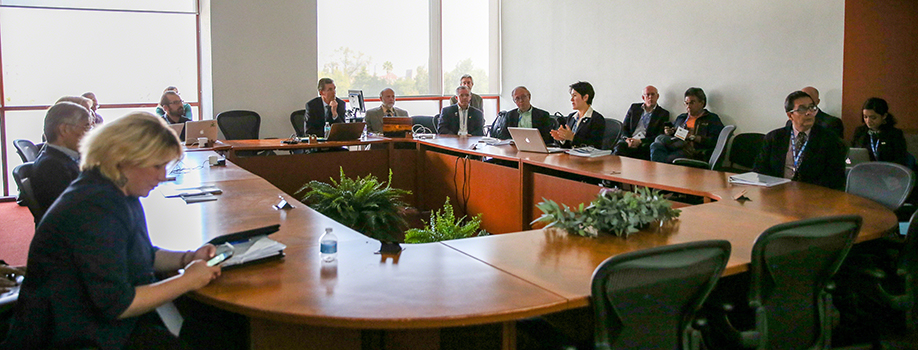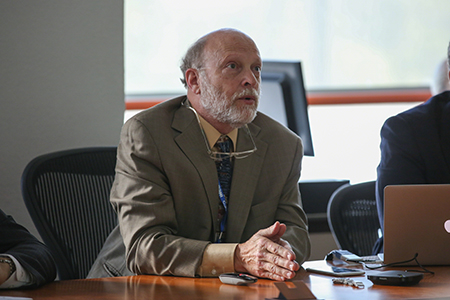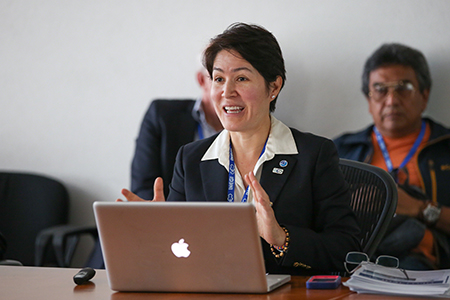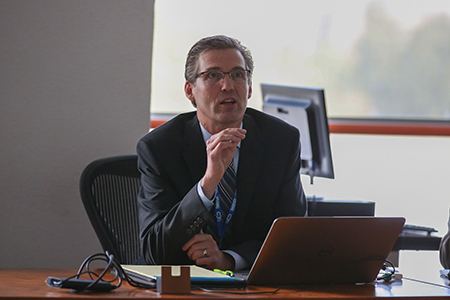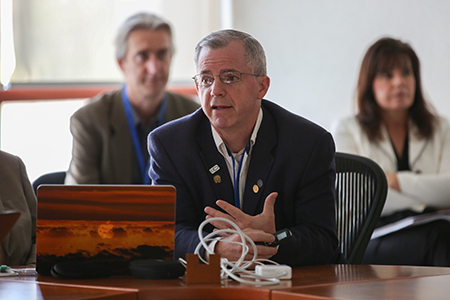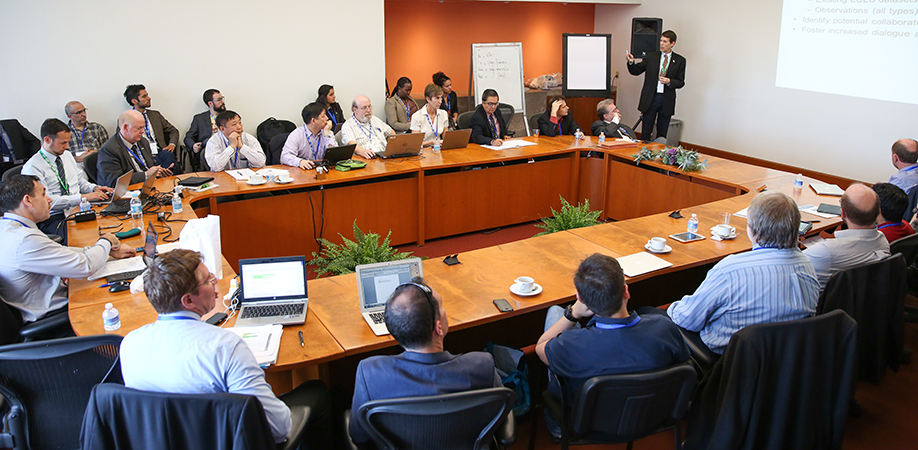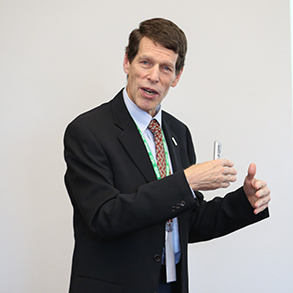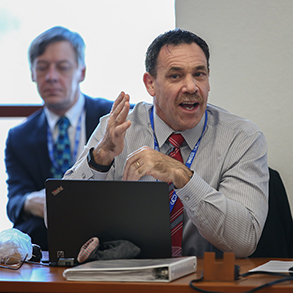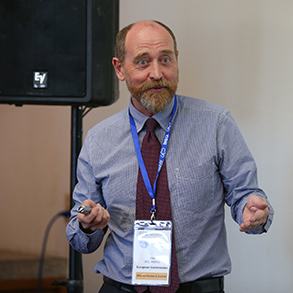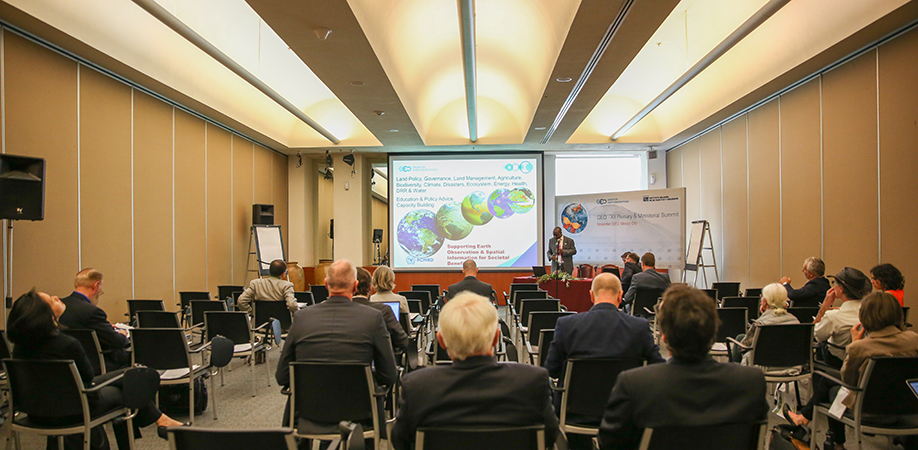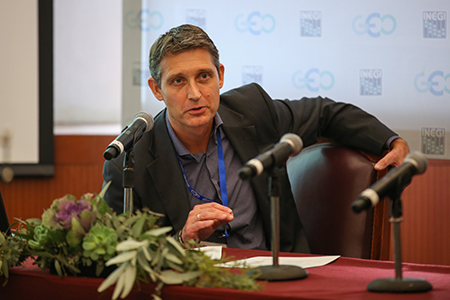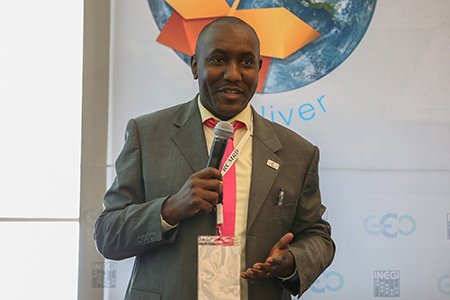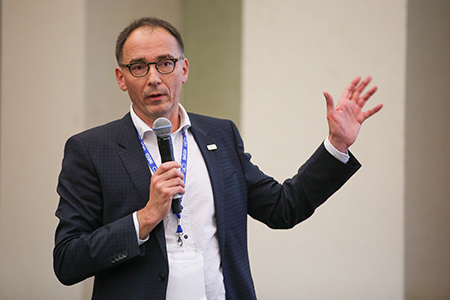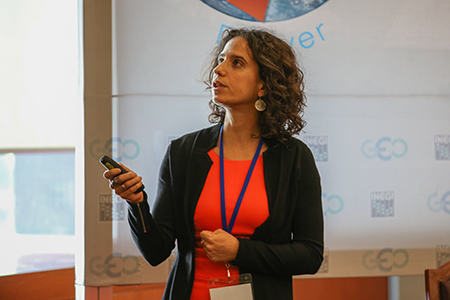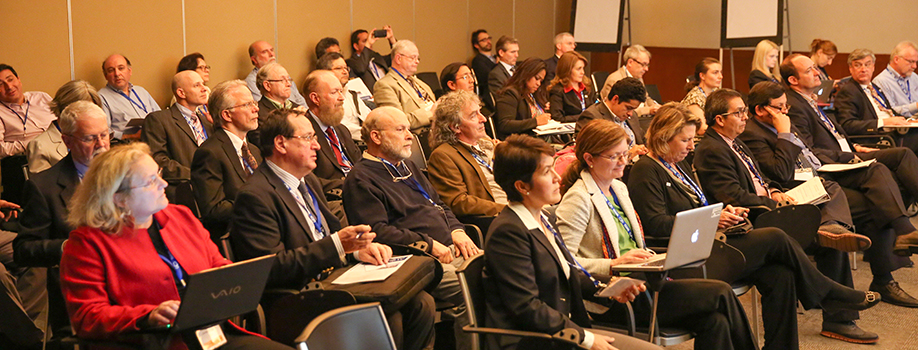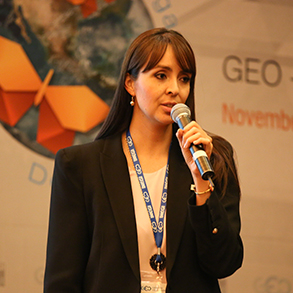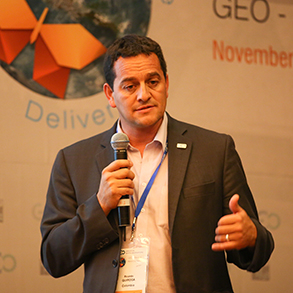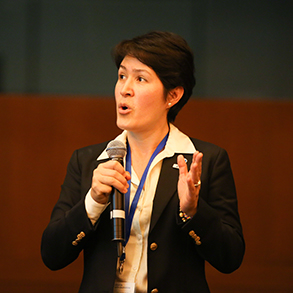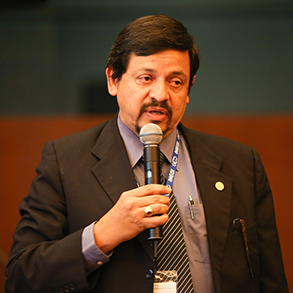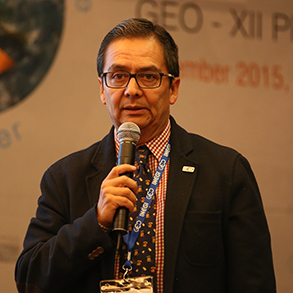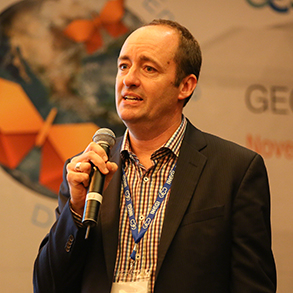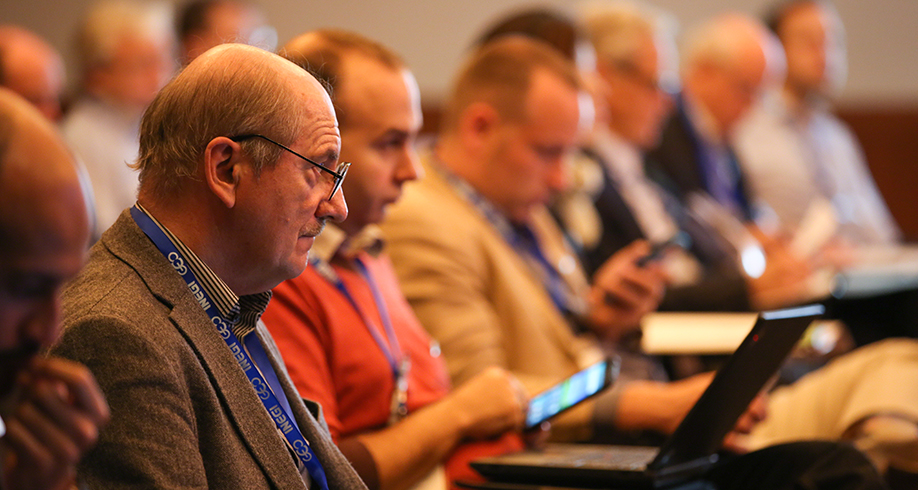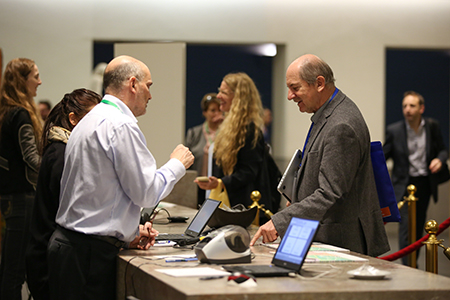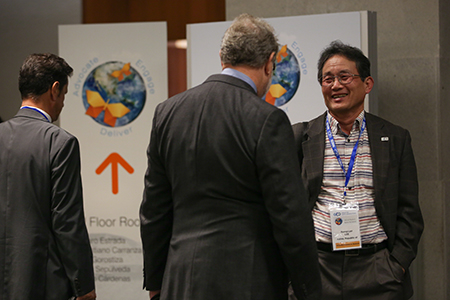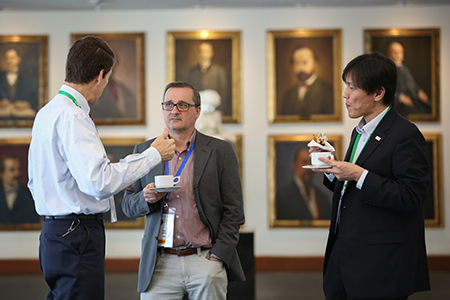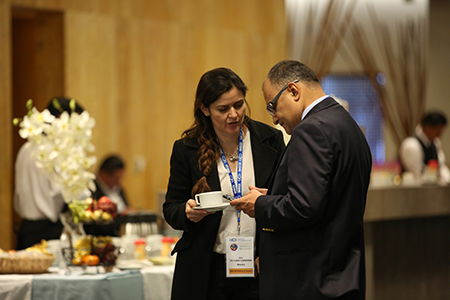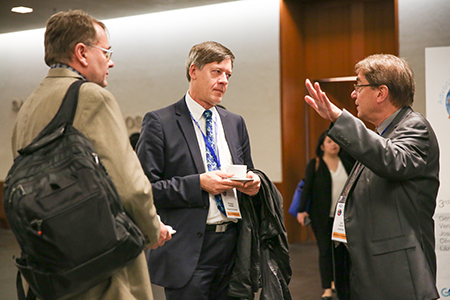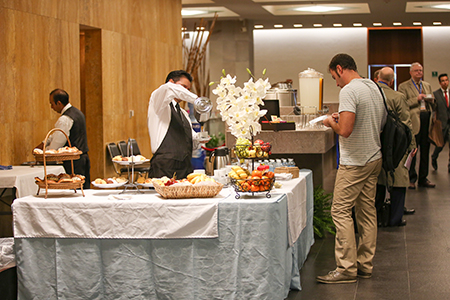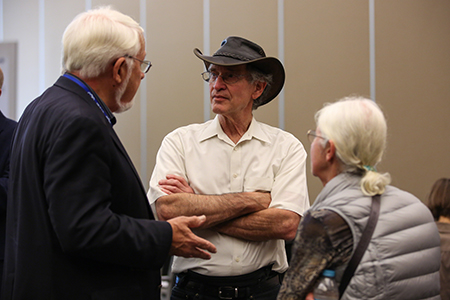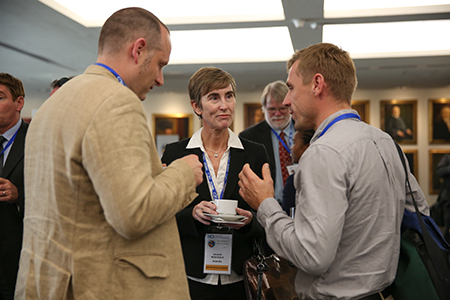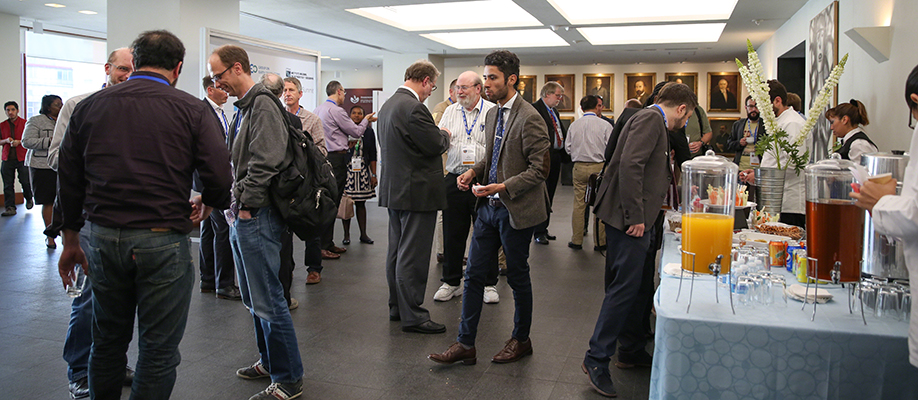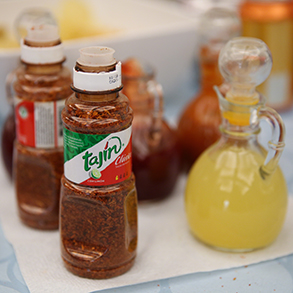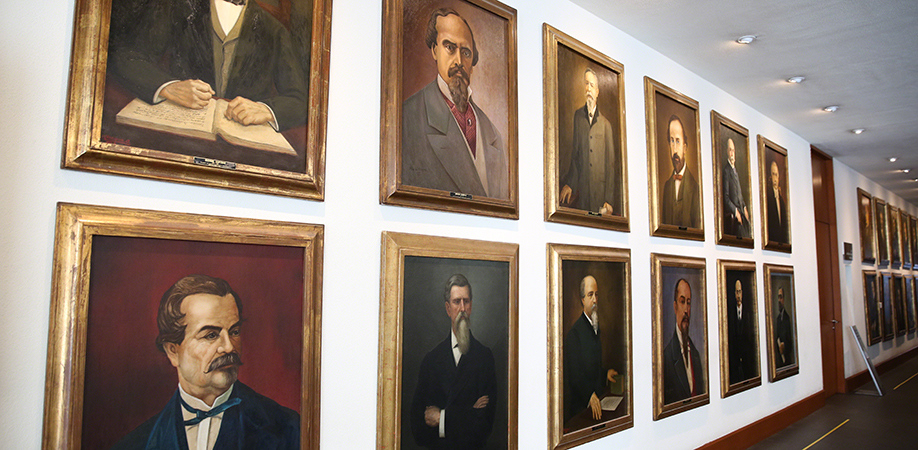|
The event, moderated by Gary Geller, GEO Secretariat, discussed land cover data needs of different players, datasets harmonization and guidance for the GEO Land Cover task. Barbara Ryan, Director, GEO Secretariat, urged participants to focus on harmonization of the activities of groups developing land cover (LC) datasets.
Michael Bordt, UN Statistics Division, highlighted areas for collaboration on assessing and improving global land cover data, establishing a global spatial reference grid and developing an international standard land cover classification. He added that countries need baseline data in order to track progress from 2016 to 2030.
Alan Belward, European Commission, said the demand for reliable, on-demand, and yearly global land cover information is growing and noted the need to standardize legends, classifications, and accuracy requirements.
In the ensuing discussion, dataset users focused on inter alia: the need for accuracy, consistency and completeness of global datasets; temporal resolution and more information on vegetation and resolution on the classes, conditions and composition of vegetation; and the value of national ownership of the datasets. Dataset producers focused on, inter alia, country level dataset generation, in which the classification scheme is identified by the individual country and using national maps as “feed stock for global mapping,” as rich national datasets are often lost or unshared.
Jun Chen, National Geomatics Center, China, presented the collaborative platform for global land information (CoGland), and Yuqi Bai, Tsinghua University, presented the GEO Land Cover Portal.
Roger Sayre, US Geological Survey, presented on commonalities in global land cover datasets and underscored the challenges of crosswalking different land classification classes.
In the roundtable discussion, participants suggested, inter alia, that: new portals should avoid duplication and focus on harmonization; the SDGs provide an opportunity to produce data that serve to address food insecurity and hunger; carrying out a reinterpretation of legends of land cover classifications in consideration of new user needs; and facilitating more structured dialogue between data users and providers.
| |


